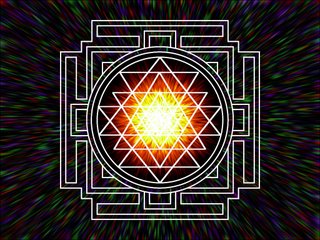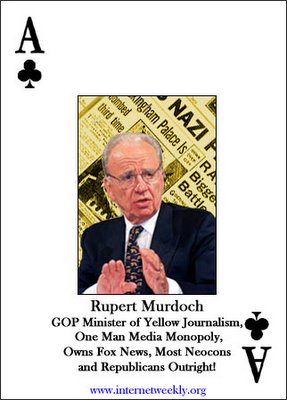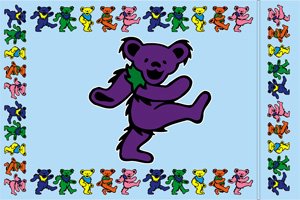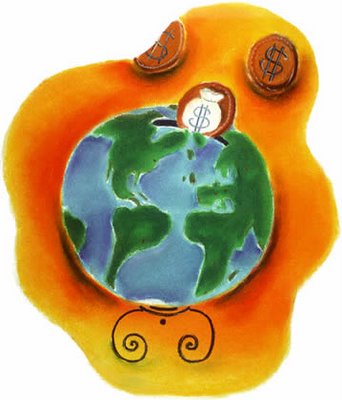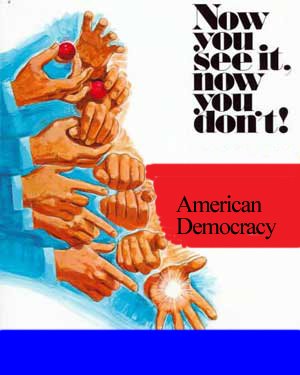
The Illusion of Democracy
The question which must be asked is, “Is democracy an illusion?” But how do we answer this question, is there a way to validate the ideal of democracy which does not betray its own definition. Let us examine the definition of democracy: a political system in which the supreme power lies in a body of citizens who can elect people to represent them.
Ultimately, I must reject this definition of democracy as it is simply factious, for numerous reasons. Let’s breakdown this definition: “the supreme power lies in a body of citizens,” yes, this is a general statement, on purpose. What does a “body” truly consist of, what numerical value must be attained in order to achieve a true body of citizens. Since there is no numerical data given as to what constitutes body, we must assume that the number of “elected” officials is simply the true body. A true body would be the collective of all citizens in the country, but this, again, is not viable. The “body” is reduced and stratified through race, class, and, was up until 86 years ago, by gender. So, in these terms, the body effectively was made up of educated-wealthy-white-males, and, dare I imply this, still is. The aristocracy which founded the nation, as James Madison called the peasantry of the nation, “the great beast”, never intended the populous to be involved in its politics. And, initially, this was a relatively easy to control: by standards of landed gentry and wealth. The governmental idealist philosophy was set astray before it could even begin to develop. As the country developed, measures to control “democracy” became increasingly subversive, as well as outwardly oppressive, as has been witnessed through elections over the last 100 years. It is still those with a stake in the economic well-being of the nation whose decisions matter the most (wealthy-white-industrial-capitalists). What has changed?
The connotations of democracy inexorably link it to economics as well: freedom of choice, where to expend capital and in what fashion, and expansion of capital. This is a dangerous connection to make: this connection completely invalidates what ideals are left in the democratic philosophy, as it leads to biases based on class, race, gender, and nationalism, effectively lending weight to those that fit the ideals of the current economic philosophy of the state. However, since the democratic system expunges those whose voices they deem do not matter, this union is perfectly acceptable and harmonizes.
How does one change this system? It seems perpetually cyclic. Perhaps it is time we come to the realization that there are two options afforded to the populous at this point:
1) Bury our heads in the sand and pretend your consciousness and vote still make a difference and matter. (These things do not matter, as has been proven well in the last two elections with both parties under-handed and loathsome debauchery)
2) Destroy the entire system: revolutionary overhaul. This is the only viable option left in a system that knowingly and willingly abandons the people’s will.
We must embrace this notion. And, let us be “real” for a moment, there is no such thing as a non-violent movement. This is not strictly violence in the physical sense, which I think is the by-product or side-effect of ideological violence. Let me explain this idea: we all have “borders” of ideology/thought/intelligence which create perceptions of “world” and “society”. When new ideas/thoughts/intelligence are introduced into our mental framework, there must be an expanding of our “borders”, whether one is rejecting or accepting this information. In this boundary expansion, violence occurs as the ideas/thoughts/intelligence transgresses and infiltrates the original boundary of one’s own framework. So, in essence, a “non-violent” revolution is completely false. And, if the necessary revolution wasn’t violent, then it is simply passive compliance, which will affect nothing in the end result.
We can no longer abide by governmental system whose prejudice involves a fair majority of the population (white-industrial-capitalists), whose bureaucratic indulgence limits the choices the inhabitants of the country can do to change the system, to create and demand effective change (the limitations of a two party system owned by same person: capitalism), and whose complete ignorance and blatant disregard for democratic country should ban them from attempting to reinstate it elsewhere. Dismantle the Electoral College; if the populous decides whom the leader should be, then there is no reason to undermine it with this “safety valve”, ensuring the “chosen one”, the one who best embodies the concerns of those “that matter”. Allow FAIR elections to be held, do not allow government to discriminate based on race and class, establish equal voting rights.
Of course we would have to change the national conscious and societal mechanisms and relationships to accomplish any of this. That, I believe, is impossible; it is too fully ingrained to see anything other than desperate image of a hero with a rifle in one hand and two golden scales, perfectly balanced, in the other. Democracy: now you see it, now you don't.
Ultimately, I must reject this definition of democracy as it is simply factious, for numerous reasons. Let’s breakdown this definition: “the supreme power lies in a body of citizens,” yes, this is a general statement, on purpose. What does a “body” truly consist of, what numerical value must be attained in order to achieve a true body of citizens. Since there is no numerical data given as to what constitutes body, we must assume that the number of “elected” officials is simply the true body. A true body would be the collective of all citizens in the country, but this, again, is not viable. The “body” is reduced and stratified through race, class, and, was up until 86 years ago, by gender. So, in these terms, the body effectively was made up of educated-wealthy-white-males, and, dare I imply this, still is. The aristocracy which founded the nation, as James Madison called the peasantry of the nation, “the great beast”, never intended the populous to be involved in its politics. And, initially, this was a relatively easy to control: by standards of landed gentry and wealth. The governmental idealist philosophy was set astray before it could even begin to develop. As the country developed, measures to control “democracy” became increasingly subversive, as well as outwardly oppressive, as has been witnessed through elections over the last 100 years. It is still those with a stake in the economic well-being of the nation whose decisions matter the most (wealthy-white-industrial-capitalists). What has changed?
The connotations of democracy inexorably link it to economics as well: freedom of choice, where to expend capital and in what fashion, and expansion of capital. This is a dangerous connection to make: this connection completely invalidates what ideals are left in the democratic philosophy, as it leads to biases based on class, race, gender, and nationalism, effectively lending weight to those that fit the ideals of the current economic philosophy of the state. However, since the democratic system expunges those whose voices they deem do not matter, this union is perfectly acceptable and harmonizes.
How does one change this system? It seems perpetually cyclic. Perhaps it is time we come to the realization that there are two options afforded to the populous at this point:
1) Bury our heads in the sand and pretend your consciousness and vote still make a difference and matter. (These things do not matter, as has been proven well in the last two elections with both parties under-handed and loathsome debauchery)
2) Destroy the entire system: revolutionary overhaul. This is the only viable option left in a system that knowingly and willingly abandons the people’s will.
We must embrace this notion. And, let us be “real” for a moment, there is no such thing as a non-violent movement. This is not strictly violence in the physical sense, which I think is the by-product or side-effect of ideological violence. Let me explain this idea: we all have “borders” of ideology/thought/intelligence which create perceptions of “world” and “society”. When new ideas/thoughts/intelligence are introduced into our mental framework, there must be an expanding of our “borders”, whether one is rejecting or accepting this information. In this boundary expansion, violence occurs as the ideas/thoughts/intelligence transgresses and infiltrates the original boundary of one’s own framework. So, in essence, a “non-violent” revolution is completely false. And, if the necessary revolution wasn’t violent, then it is simply passive compliance, which will affect nothing in the end result.
We can no longer abide by governmental system whose prejudice involves a fair majority of the population (white-industrial-capitalists), whose bureaucratic indulgence limits the choices the inhabitants of the country can do to change the system, to create and demand effective change (the limitations of a two party system owned by same person: capitalism), and whose complete ignorance and blatant disregard for democratic country should ban them from attempting to reinstate it elsewhere. Dismantle the Electoral College; if the populous decides whom the leader should be, then there is no reason to undermine it with this “safety valve”, ensuring the “chosen one”, the one who best embodies the concerns of those “that matter”. Allow FAIR elections to be held, do not allow government to discriminate based on race and class, establish equal voting rights.
Of course we would have to change the national conscious and societal mechanisms and relationships to accomplish any of this. That, I believe, is impossible; it is too fully ingrained to see anything other than desperate image of a hero with a rifle in one hand and two golden scales, perfectly balanced, in the other. Democracy: now you see it, now you don't.
